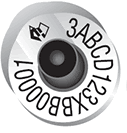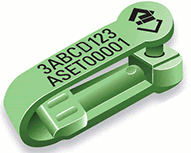Pounds NLIS requirements
As livestock are moved to and kept at pounds, it is critical to ensure the use of robust livestock traceability practices and adherence to legislative requirements.
Pound operators must:
1. Obtain a property identification code (PIC)
- ensure a PIC is registered to the property at which the pound is located
- ensure the PIC details are up to date.
Apply for, amend or cancel a PIC
Apply for a new property identification code (PIC) or amend or cancel an existing PIC online or by calling the Agriculture Victoria NLIS Helpline 1800 678 779.
Apply, amend or cancel online2. Obtain an NLIS account
A ‘pound’ NLIS account is required to complete a transfer onto the pound PIC or a ‘sighted’ transfer
An NLIS account can be obtained online or by calling the NLIS Database Helpdesk 1800 683 111.
Access the NLIS
Register or log in to Australia's national livestock identification system (NLIS) online or call the NLIS Database Helpdesk on 1800 683 111.
NLIS online3. Ensure the owner/keeper of the impounded animals has a PIC
- PICs. All owners and keepers of cattle, sheep, goats, pigs, alpacas, llamas, deer, horses, camels, 50 or more poultry legally MUST have a PIC.
Where the source property of impounded livestock is known, and the owner/keeper of the impounded animals does not have a PIC and refuses to apply for one, please email the owner/keeper details to livestocktraceability@agriculture.vic.gov.au.
4. Ensure all animals are NLIS tagged or tattooed
- NLIS tags. If sheep, goats, or cattle are impounded and are not already tagged with the owner/keeper’s NLIS tags then an orange cattle or pink sheep and goat post-breeder tag bearing the PIC of the pound must be applied to the animal’s ear before they leave the pound.
- if a pig does not have a tag or a tattoo, please contact Agriculture Victoria on 1800 678 779 for assistance.
- order tags online.
If the source property of the impounded livestock is unknown or the animals are untagged, a permit to move animals to the pound is required from Agriculture Victoria. A permit can be applied by emailing livestocktraceability@agriculture.vic.gov.au. For urgent welfare or emergency circumstances, you can notify Ag Vic up to 7 days after the animals have been moved.
NLIS tags for cattle, sheep, goats and pigs
Order post-breeder tags online or call the Agriculture Victoria NLIS Helpline 1800 678 779
Order online5. Ensure all NLIS tags are scanned or visually recorded
All cattle, sheep and goats present at a pound must have their NLIS tags scanned or visually recorded. These tag numbers will be used in the NLIS transfer.


6. Ensure a NLIS transfer, or sighted transfer are completed on the NLIS database
The sighted transfer is a simplified transfer that can be completed when livestock are kept at a pound for less than seven days and are returned to their original property. Any animals that are kept for longer than seven days or do not return to their original property from the pound must be transferred onto the pound PIC.
- Log onto the NLIS database.
- Choose what livestock species you want to work with.
- Notify the database of – Livestock moved onto my property (full NLIS transfer onto the pound PIC).
- Notify the database of – Sighted livestock (simplified transfer).
7. Enter the following data when completing a full NLIS transfer or a sighted transfer
- NLIS tag numbers for each animal.
- PIC of the property the animals arrived from. This is entered into the comments box for the sighted transfer.
- date the animals arrived at the pound.
The NLIS transfer onto the pound PIC or the sighted transfer must be completed within 2 days of the animal’s arrival at the pound, or before they leave the pound, whichever is sooner.
Completing a full or ‘sighted’ transfer
Find out more about completing a full or sighted transfer from the NLIS Database Sight Livestock Tech Tip online or by contacting the NLIS Database Helpdesk on 1800 683 111.
Log in to read tech tip8. Ensure the movement of pigs on the PigPass database is completed
All pigs present at a pound must have their movement reported on the PigPass database.
Information about PigPass can be found online at pigpass.australianpork.com.au under the FAQ tab or by calling the PigPass helpdesk on 1800 001 458.
The sighted transfer, full transfer or a pig movement shows that specific animals, identifiable by their NLIS tags or tattoos were present at the pound on a certain day or days.